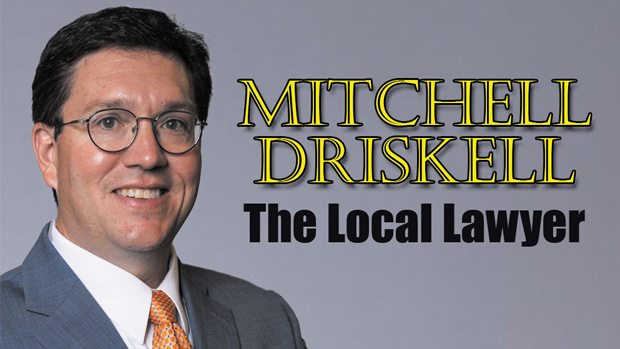
by Mitchell Driskell
The Most Important Case of Which You Have Never Heard
Chevron USA v. Natural Resources Defense Council affects every American, every day, while a very small percentage of people are affected by the high-profile Supreme Court cases, those cases about hanging the ten commandments in a courtroom or about a bakery’s cake menu. The cases on “hot button” issues are used by both political sides to stir up emotion and controversy but have infinitesimal impact on our day-to-day lives.
The Chevron case, however, affects how the gigantic federal government works, a systematic decision. To begin, a little federal Civics 101. The legislature (the “people” through their elected representatives) creates the laws. The President does not create laws, rather, the creation of law and setting of policy are the people’s rights, through representative government. Then it is the President’s job to run the day-to-day affairs of the nation, to implement and carry out the laws that the people passed.
Now, imagine that the United States is a restaurant. The people are the owners. The President is supposed to be like the manager of the restaurant. The owners decide on rules for running the restaurant (the laws of the restaurant if you will), perhaps those laws provide—buffet on Monday, Taco Tuesday, and Wing Wednesday. The manager figures out how to make it happen—he or she orders the food, hires the employees, and lines up the marketing, but he or she is not supposed to changes the rules/laws. That is the American system of government.
In today’s federal government, much, if not most, of the rules for running the company are in the form of “regulations” because the government has gotten too big for the legislature to pass detailed laws covering the wide and deep reach of government. Those regulations are created through the “rulemaking” process and then carried out by government departments and agencies (the VA Department, Health and Human Services, Federal Trade Commission, etc.). These agencies and departments are run by the President, and, back to our restaurant analogy, consider them like the agencies the assistant managers of the restaurant. The President hires the people who runs these agencies and departments, and, because of Chevron USA v. National Resources Defense Council, these agencies are run drastically different from President to President. The regulations that tell an agency what to do are subject to interpretation.
The Chevron case says as long as the agency’s interpretation of a regulation is reasonable, then the Court will not second guess it. A prime example is immigration—immigration laws and regulations did not change between Trump and Biden, only their interpretation of those laws and regulations. The Chevron Deference rule means that, instead of the Supreme Court stepping in and saying that one interpretation is inconsistent with the law, the Supreme Court stays out of the issue as long as both interpretations are reasonable (and regulations can, and do, have multiple reasonable interpretations sometimes with polar opposite results).
Under Chevron, with every change of President, the interpretation of the rules changes. At our restaurant, one manager says that Taco Tuesday means the joint serves seventeen varieties of tacos, but only tacos, all day Tuesday. Then the next manager serves only fish tacos, only for lunch.
Critics of the Chevron Deference say that the rule erodes the Supreme Court’s constitutional mandate to interpret the law. They argue that, since the government has gotten so big that nearly all government functions are carried out through regulations, not congressional directive, the court’s role is to interpret these regulations just like the court interprets laws, not just rubber stamp an agency’s interpretation as “well, that’s one reasonable way to look at it.”
Supporters of Chevron say judges should defer to agency interpretations of the gaps and ambiguities in the laws they implement on the theory that Congress entrusted the statutes to the agencies, and because they are more expert and experienced in their domains than courts.
Two Chevron cases are before the court; one involves a law that requires the government to monitor commercial fishing. That is all the legislative (the law) part says. To carry out the law, the regulation says that there must be a government employee on every commercial fishing ship, but the regulation does not say who must pay for this observer. Under Obama, the government paid the observer’s salary. Under Trump, the fishing company must pay the observer’s salary.
The other case involves financial whistleblower laws and how much a fired employee must prove to make a whistleblower claim under Sarbanes-Oxley. The court took these cases specifically to challenge the Chevron deference, and, in my opinion, these are the two most important cases the court will decide all year, possibly all decade. Reversal of the Chevron deference rule would reduce the power of the executive branch to implement policy through regulatory interpretation and would increase the power of the court.
Good or Bad? You decide. Certainly important.
Mitchell Driskell has practiced law for twenty-two years. He is currently with the Tannehill & Carmean firm. You can reach him at 662.236.9996 or mitchell@tannehillcarmean.com. He practices personal injury law, criminal law and family law and has passed level 2000 on Candy Crush.


